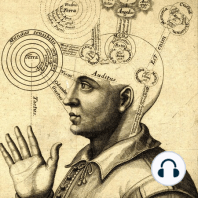62 min listen

Podcast for Social Research, Episode 75: The Piano Teacher
Podcast for Social Research, Episode 75: The Piano Teacher
ratings:
Length:
46 minutes
Released:
Mar 15, 2024
Format:
Podcast episode
Description
In this edition of the Podcast for Social Research, recorded live before of a screening of Michael Haneke’s 2001 The Piano Teacher, BISR faculty Lauren K. Wolfe, Rebecca Ariel Porte, and Paige Sweet take up impinging mothers, absent fathers, and the variable affordances of literary and cinematic media, as they compare and interpret Haneke’s film and the eponymous novel by Elfriede Jelinek from which it was adapted. Topics touched on include: the reactionary milieu of 1980s Austria; ways of reading psychological depth from cinematic surface; recognition and misrecognition (by way of Aristotle and Lauren Berlant); pedagogy and its incidental lessons; musical Romanticism and sexual pathology; dissonance and the (dashed hope for) a return to tonic; Freud and polymorphous perversity; Schubert’s Winterreise, Schubert as seduction strategy, Adorno on Schubert, and much else besides.
Released:
Mar 15, 2024
Format:
Podcast episode
Titles in the series (99)
The Podcast for Social Research, Episode 19: Biopolitics in Bloomberg's New York: The nineteenth episode of the Podcast for Social Research features BISR research associate Jeffrey Escoffier, formerly the director of health, media, and marketing for the New York City Department of Health and Mental Hygiene under Michael Bloomberg,... by The Podcast for Social Research